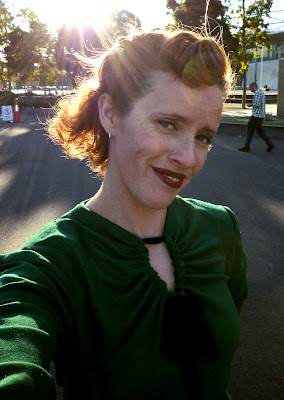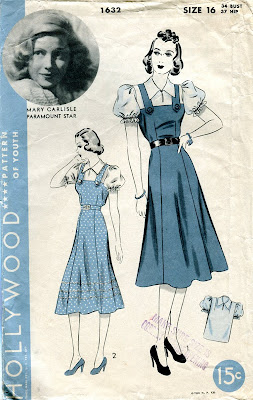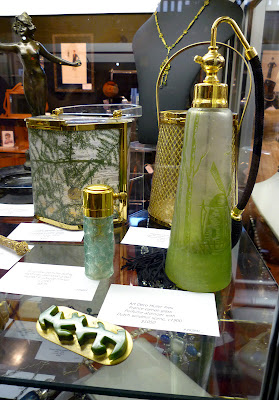Earlier this year, I recieved a lovely email from Melbourne-based visual artist
Louise Saxton. She had discovered my blog through my 'Habadashery Heaven'
post and thought I might be interested in her upcoming exhibition at
Heide Museum of Modern Art.
Sanctuary uses reclaimed needle-work to reinterpret historical bird and insect paintings and is the result of two years of solid work. Each piece is painstakingly constructed by pinning the deconstructed embroidery pieces to nylon tulle to create texture and fill in the detail. Oh, and what detail!! Layer upon layer of foliage and flowers blended together, so much detail I could barely stop myself from touching. Not a good idea in a museum, plus the guard was watching me like a hawk.
 |
| Detail of 'Carolina on my Mind' (54 x 32cm) |
After seeing the exhibition, I was curious about the construction process and the lovely Louise was only too happy to answer my questions. So, if you can't get to the show in person, I hope my mini interview sheds some light on how these beautiful creatures are created.
On average, how long does it take to
construct a piece?
For example: Maria's Saturn (Caterpillar) vs the King Parrot?
 |
| Maria's Saturn (39 x 57cm) |
Queen Billie, the King
parrot, was the first of the birds in this collection and I worked on her over
a 5 month period. Maria’s Saturn, the
caterpillar, only took 6 days but by the time I came to make it, a whole year
later, I was working much more intensely on the pieces. It is also a much
smaller piece.
Another good comparison is between the Flaming
Flamingo, which took 21 solid days over 6 weeks while Major Tom, the cockatoo,
took eight days over 2 weeks.
 |
| Detail of Queen Billie (125 x 84cm) |
When sourcing materials, do you set out
with a particular image or colour in
mind? Or, do you just 'go by feel' and pick up pieces which attract your
attention?
When I first began collecting
needlework for deconstruction 5 years ago – mostly hand-made needlework, or
machine-made by a person sitting at a machine – it was like a treasure hunt
each time and I would buy everything I could afford. I then cut and colour code it back in the
studio.
I have gone hunting at
various times for specific colours – and asked friends and family to keep an
eye out for me. For example, when I decided to reinterpret Elizabeth Gould’s
Major Mitchell’s cockatoo I needed to go out specifically looking for the
variety of pinks to create the right palette.
 |
| Halcyone & Ceyx (59 x 76cm) |
The majority of your pieces appear to be
made up purely of foliage & flowers, although I did spy a small bridge here
and there. Is this intentional?
In my previous body of work
which was the result of a residency in a Malaysian garden estate in 2006 and
toured back to Malaysia and Singapore in 2008, I included all kinds of
embroidered and lace motifs – animals, people, houses, boats etc., as the works
were more 2 dimensional and mostly monochrome and the reference to other
cultures was important, particularly Asian decorative arts.
For Sanctuary, I wanted the
important relationship between the garden/forest and the bird/insect to be a
strong element and for the motifs to blend as feathers and scale more. Also, throughout history floral imagery has
made up a large majority of needle-worked motifs so they are more common.
If you look closely at the work and there are a number of
‘hidden’ motifs, such as the bridges from the Willow Pattern, but also Chinese
Cloud motifs and I deliberately chose a gold ecclesiastical crown for the
feathers above the beak of one King-fisher. There is also a pink flamingo (which my husband
found for me) hidden in the neck of my Flaming Flamingo! I like this element of
playfulness within the work.
 |
| Flaming Flamingo (96 x 78cm) |
24th March - 29th of July 2012.
- Tamara
__________________________________________________________
NOTE: All images appear with the kind permission of Louise Saxton.
Thanks again, Louise!!





















































